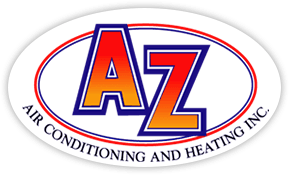
Purchasing your first home is thrilling. You’re probably juggling a dozen things or more about making the right choice. We believe that gaining insight into your future HVAC system is crucial. The property’s HVAC system represents a significant investment and source of potential long-term costs, so being thorough should be a top priority for first-time homebuyers.
In this guide, we’ll outline seven tips for discovering all there is to know about a home’s heating and cooling setup. And if you want a more in-depth opinion from the pros, consider calling AZ Air Conditioning and Heating. Our staff can weigh in on your options with industry insights that are second to none.
1. Which Kind of HVAC System Does the Home Use?
Start by determining what specific HVAC system the home features. Furnaces generally last longer compared to air conditioners, and newer types of HVAC equipment like heat pumps can offer average life spans longer than ever. Knowing the make and specific model ensures you have a much better sense of how much it might cost in upkeep over time.
2. How Long Ago Was the System Installed?
It’s just as smart to learn how old the HVAC system is when you're looking at a new home. In general, HVAC systems should survive for around 10-12 years. Learning its approximate installation date helps you prepare for any needed servicing or considerations if it might shut down for good. Older systems may be more vulnerable to problems, so planning ahead of time for a replacement unit could be necessary sooner than you thought.
3. Is the Warranty Still in Effect?
Don’t forget to look into whether the HVAC system is still under warranty. If it is, this can lower maintenance expenses. HVAC warranties should take care of parts and labor, but it's important to note that details will vary. Don’t forget to look into any terms you don’t recognize to make sure you fully understand your coverage and any possible out-of-pocket costs.
4. Has the System Ever Been Professionally Serviced or Maintained?
Don't forget to check the maintenance history of the HVAC system, if that information is available. This service history can demonstrate if the repair needs are high or how much upkeep was provided. Inquire about key tasks like filter changes, which means it enjoyed more regularly scheduled tune-ups.
5. Are You Aware of the System’s Energy Efficiency Ratings?
Purchasing a home with a heating and cooling system with strong energy efficiency isn’t just smart; it leads to lower utility bills and less of an impact on the environment. Try and find the seasonal energy efficiency ratio (SEER) ratings for air conditioning as well as the annual fuel utilization efficiency (AFUE) for furnaces. The higher the SEER rating, the more efficient the cooling over the whole season, while high AFUE ratings mean the fuel is efficiently converted into useable heat.
6. Did You See Any Problems After Completing an Informal Inspection?
Even without heating and cooling expertise, you should still examine the HVAC system yourself. Watch closely for signs of problems that might have been overlooked. This can mean bizarre noises, spots with uneven heating or cooling and attempts to hide any serious damage.
7. Have You Sought Out Expert Advice?
If you're unsure about the condition of the HVAC system, it's never a bad idea to get an assessment and recommendation from trained HVAC technicians. They can spot things you might miss, including refrigerant leaks, bad electrical connections or inefficient ductwork.
A Chat with AZ Air Conditioning and Heating Simplifies Your Home-Buying Journey
Finding your first home ought to be exciting, and AZ Air Conditioning and Heating will do everything possible to ensure yours is too. Reach out with us at 800-296-5088. We can talk about how our HVAC services help make this process smoother, giving you what you need to dive into home-ownership with confidence.
